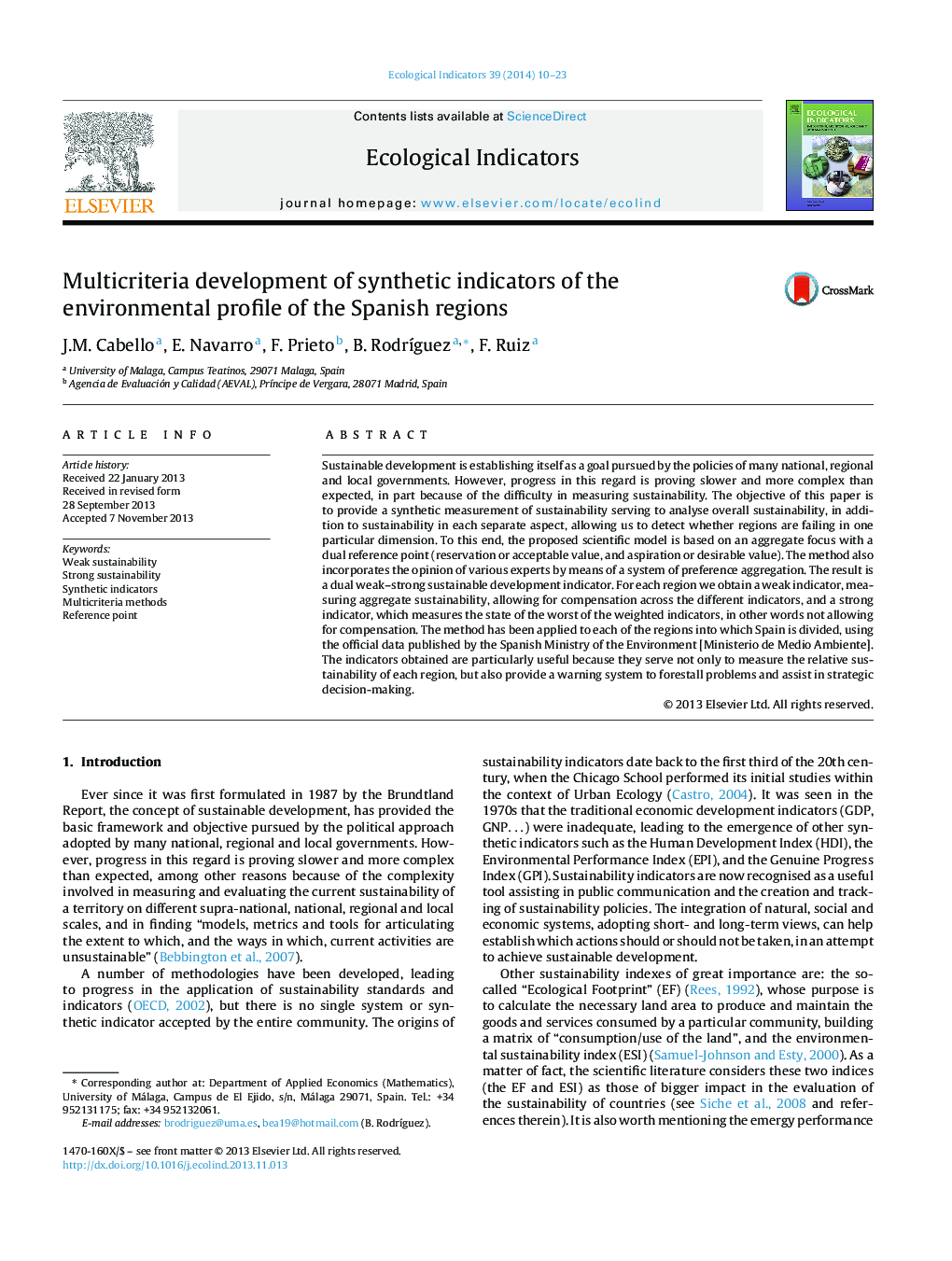| Article ID | Journal | Published Year | Pages | File Type |
|---|---|---|---|---|
| 6295395 | Ecological Indicators | 2014 | 14 Pages |
Abstract
Sustainable development is establishing itself as a goal pursued by the policies of many national, regional and local governments. However, progress in this regard is proving slower and more complex than expected, in part because of the difficulty in measuring sustainability. The objective of this paper is to provide a synthetic measurement of sustainability serving to analyse overall sustainability, in addition to sustainability in each separate aspect, allowing us to detect whether regions are failing in one particular dimension. To this end, the proposed scientific model is based on an aggregate focus with a dual reference point (reservation or acceptable value, and aspiration or desirable value). The method also incorporates the opinion of various experts by means of a system of preference aggregation. The result is a dual weak-strong sustainable development indicator. For each region we obtain a weak indicator, measuring aggregate sustainability, allowing for compensation across the different indicators, and a strong indicator, which measures the state of the worst of the weighted indicators, in other words not allowing for compensation. The method has been applied to each of the regions into which Spain is divided, using the official data published by the Spanish Ministry of the Environment [Ministerio de Medio Ambiente]. The indicators obtained are particularly useful because they serve not only to measure the relative sustainability of each region, but also provide a warning system to forestall problems and assist in strategic decision-making.
Keywords
Related Topics
Life Sciences
Agricultural and Biological Sciences
Ecology, Evolution, Behavior and Systematics
Authors
J.M. Cabello, E. Navarro, F. Prieto, B. RodrÃguez, F. Ruiz,
